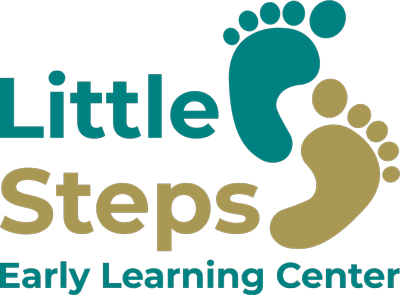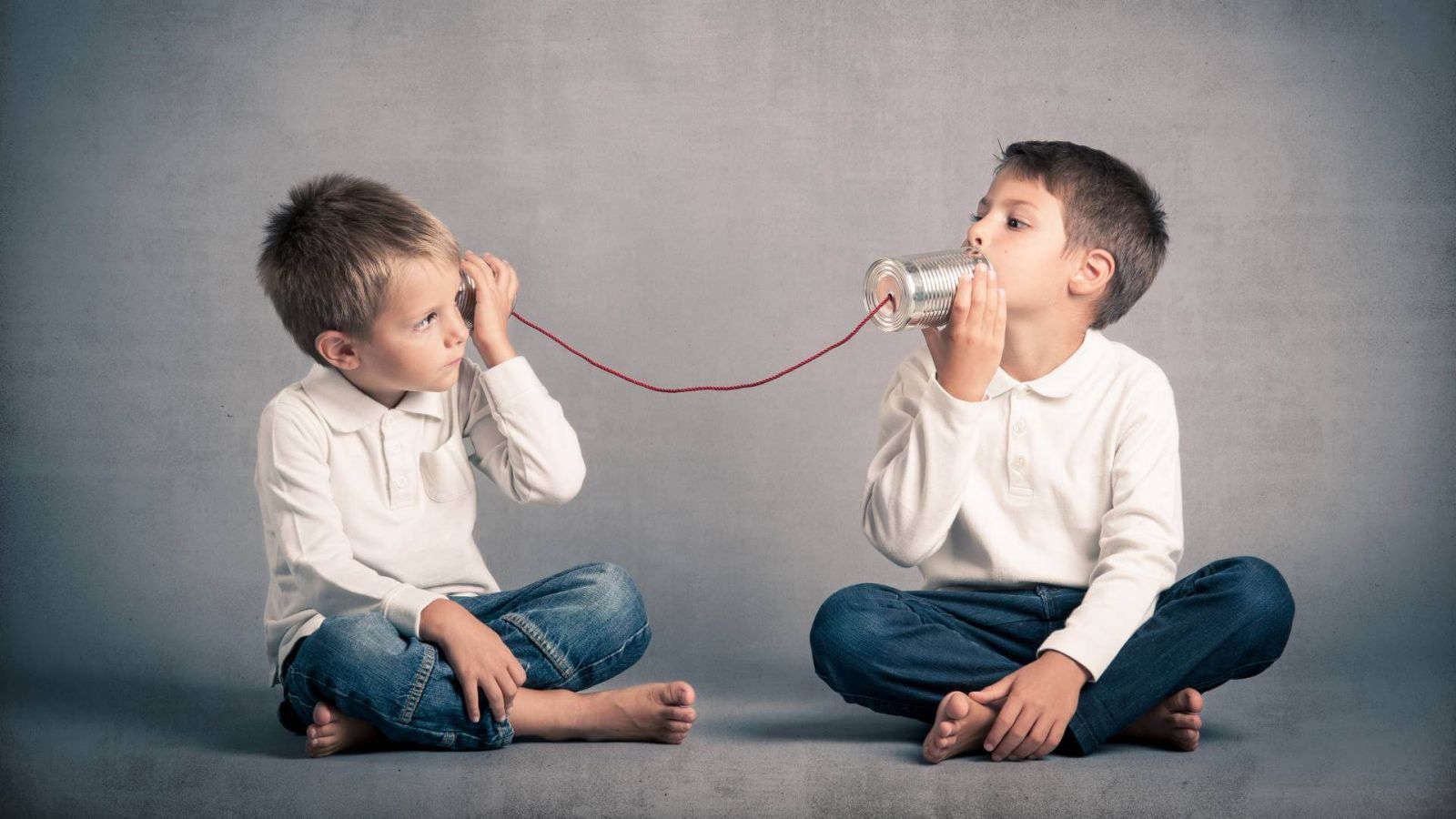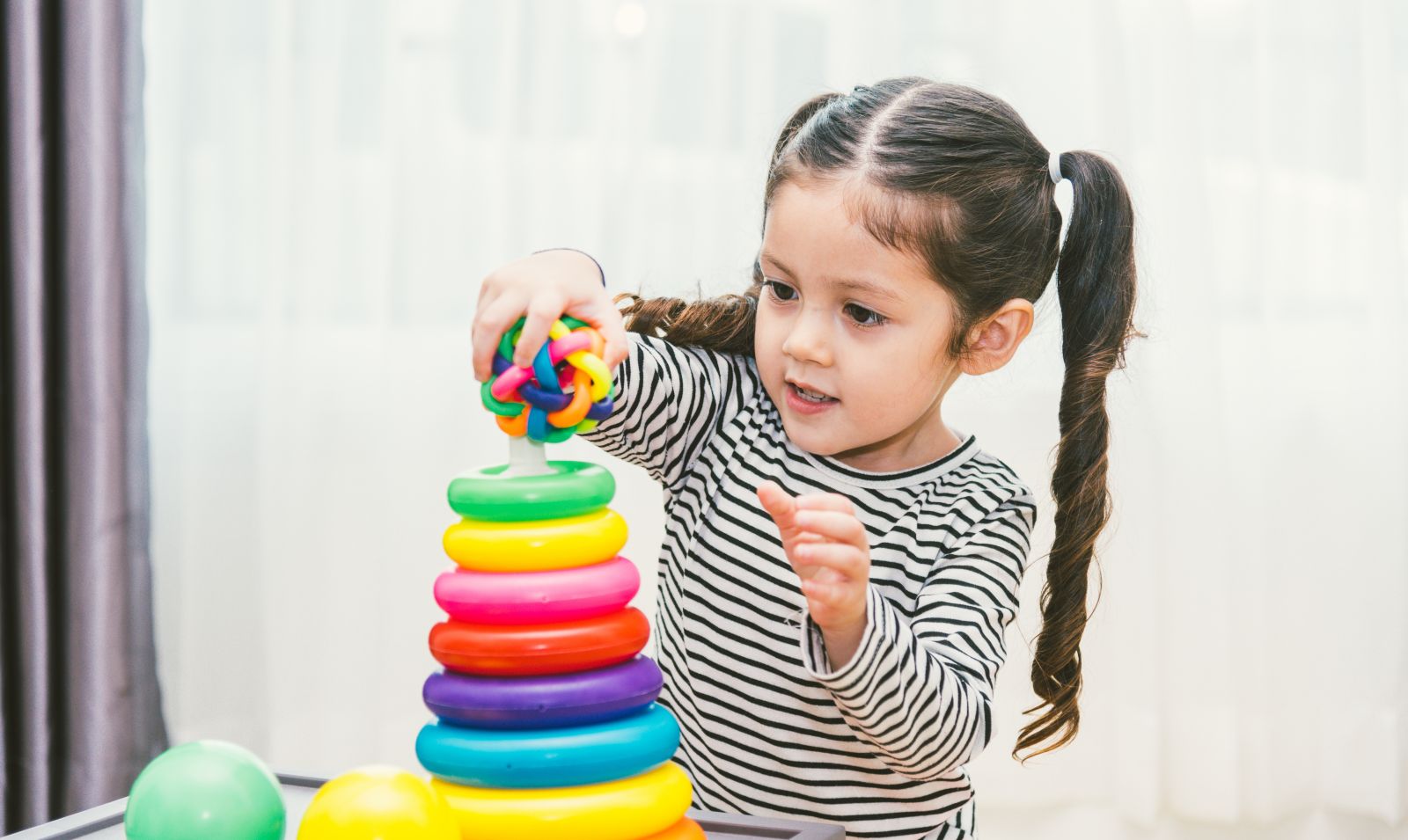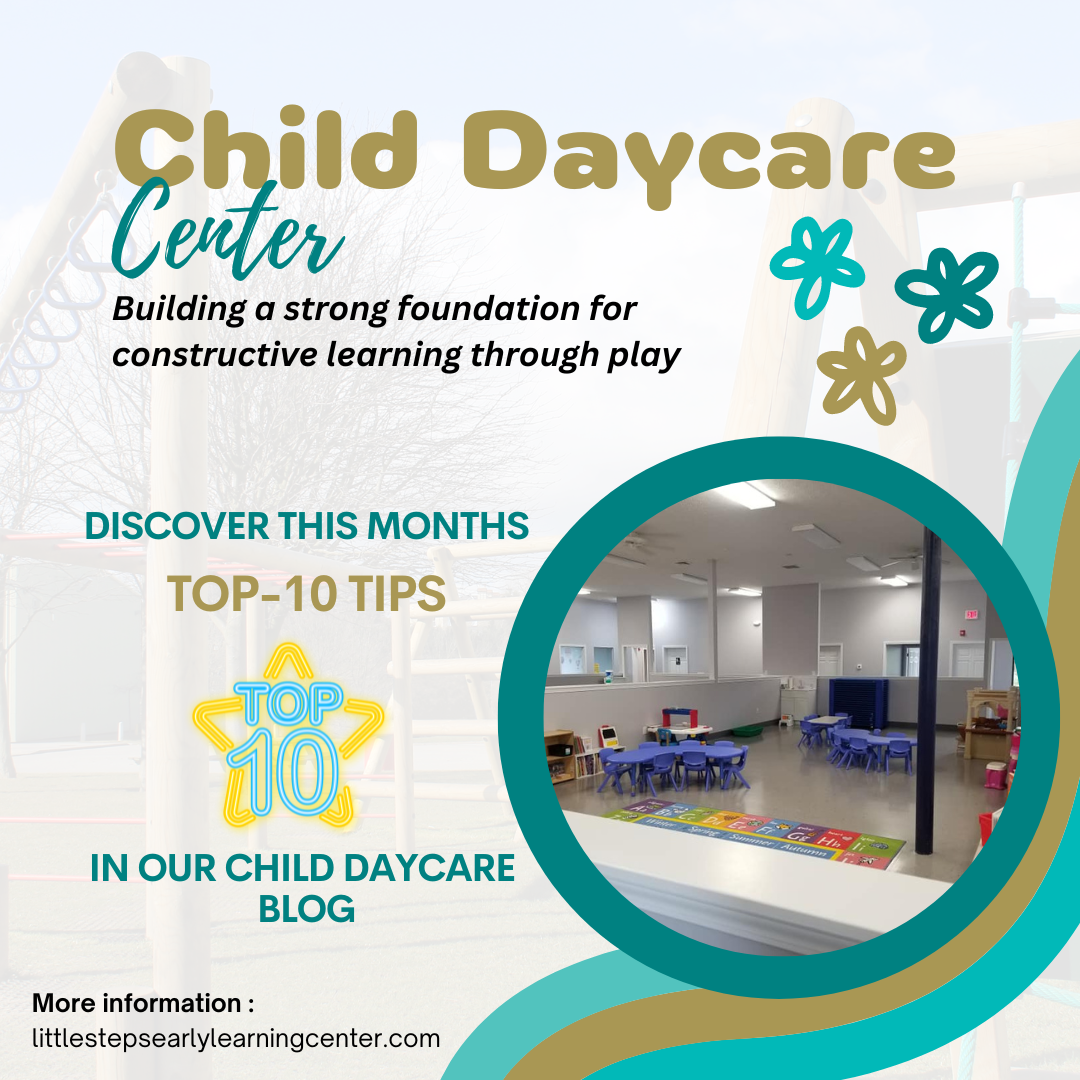Choosing the right daycare is a big decision for your child's future. With over 4 million early learning centers in the U.S., it can be hard to find the best one. More than 59% of young children attend daycare, making the choice essential for their development.
At Little Steps Early Learning Center in Lafayette, IN, we get how tough this is. We focus on growing your child's mind, social skills, and feelings through fun learning. Every choice you make affects your child's school readiness and future success. So, where do you start?
Parents often spend eight weeks looking for the right daycare, but 40% still feel unsure. What matters most are the teachers, class sizes, and the curriculum. Our center is accredited, ensuring safety with CPR-trained staff and small class sizes for personal attention.
We also offer flexible care options for working families. With 70% of parents relying on recommendations, we invite you to see if our approach fits your child's needs.
Key Takeaways
- Look for NAEYC-accredited centers like Little Steps to ensure quality curricula and staff credentials.
- Small child-to-caregiver ratios, often mandated by state licensing, foster individualized care.
- Research shows that high-quality programs boost school readiness by 20-30%, so prioritize centers with proven methods.
- Check for daily outdoor play, healthy meals with omega-3-focused nutrition, and parent-teacher communication tools like LifeCubby.
- Little Steps offers financial aid and flexible schedules, addressing 60% of parents' top priorities: location and cost accessibility.
The Importance of a Nurturing and Safe Center Early Childhood Learning Environment
Choosing the right center early childhood program starts with evaluating its environment. A nurturing space can shape your child's confidence and curiosity. At Little Steps Early Learning Center, CEO Melissa Rogier emphasizes that environments must balance safety with exploration opportunities. Here's how to spot a setting that supports your child's needs.
Creating Spaces That Promote Positive Development
Effective early education programs prioritize spaces that adapt to diverse learning styles. Look for classrooms with:
- Zones for quiet play, active movement, and group activities
- Shelves at child height to encourage independence
- Plants and natural light to reduce stress and boost engagement
Research shows well-designed classrooms reduce disruptive behavior by up to 40%, according to the Division for Early Childhood. Spaces should also allow for rest areas and sensory-friendly materials.
Physical Features of a Quality Learning Environment
Safety and accessibility are non-negotiable. Ask about:
- Daily safety inspections of toys and equipment
- Staff trained in CPR and first aid
- Outdoor play areas with soft surfacing and shade
"A safe environment isn't just about avoiding hazards—it's about fostering trust," says Melissa Rogier. "Children thrive when they feel secure to take risks like climbing or sharing ideas."
Remember to observe how children interact with their surroundings. A quality center early childhood program should let kids choose activities freely while offering clear boundaries. Watch for classrooms where materials are rotated regularly to match developmental stages. Your child's early education program should feel like a second home where they're excited to learn and grow.
How Qualified and Experienced Are the Teachers and Staff
Choosing the right early learning facility means trusting qualified educators who shape your child's growth. Teachers with proper training create safe, nurturing environments where children thrive. But did you know 46% of childcare staff rely on public assistance, impacting retention? Centers that invest in fair pay and benefits build stable, skilled teams.
Education Credentials to Look For in Early Childhood Educators
Please look for programs where staff meet or exceed state licensing standards. At a minimum, lead teachers should hold:
- An associate or bachelor's degree in early childhood education (ECE)
- Specialized training in infant/toddler care or special needs support
- CPR/First Aid certification (85% of staff hold these)
Ask about credentials: 60% of childcare workers have formal ECE qualifications, but top-tier preschool education centers aim higher. NAEYC-accredited programs often require ongoing coursework to maintain standards.
The Importance of Ongoing Professional Development
Quality programs prioritize staff growth. At Little Steps Early Learning Center, CEO Melissa Rogier emphasizes:
"Investing in teacher training reduces turnover. We offer tuition reimbursement and mentorship to retain skilled educators."
Adequate early learning facilities provide:
- Annual safety and child development workshops
- Certification updates for behavioral management and inclusion practices
- Peer coaching sessions to refine teaching techniques
Ask how staff stay updated—this ensures your child benefits from current best practices.
Qualified teachers directly impact outcomes: Studies show that children in high-quality programs score 20% higher on cognitive tests by age 5—visit programs to observe interactions and ask about staff retention rates. Your child's future depends on educators who are both skilled and supported.
The Role of Curriculum in Early Childhood Development
A well-designed early education program shapes kids' exploration, learning, and growth. When picking a kindergarten readiness center, the curriculum should match your child's age. Studies show kids do best in programs with structured yet flexible curricula that mix exploration with basic skills.
Age-Appropriate Learning Approaches for Young Children
Good curricula use methods like Montessori, Reggio Emilia, or play-based learning. Look for programs that:
- Follow state Early Learning Standards to track progress in cognitive, social, and emotional growth
- Incorporate STEAM (science, technology, engineering, arts, math) and literacy activities tailored to age groups
- Include cultural diversity to broaden children's perspectives
Balancing Structure with Play-Based Learning
Little Steps Early Learning Center mixes guided lessons with imaginative play. Their curriculum focuses on:
- Structured time for reading, math, and motor skills
- Open-ended play to boost creativity and problem-solving
According to the U.S. National Institute of Health, children in high-quality daycare achieve higher academic scores as teenagers.
Ask centers how their early education program meets individual needs. A strong curriculum should:
- Use assessments to track growth toward kindergarten readiness
- Offer transparency through portfolios or progress reports
Remember, the best programs turn learning into exploration. This ensures kids are excited to grow and build skills for school success.
How Small Class Sizes Benefit Early Learners
Choosing the right daycare center for toddlers or infants and toddlers starts with class size. Smaller groups create environments where every child thrives. Research shows that teacher-to-child ratios under 1:10 boost learning, giving teachers the time to nurture each child's unique needs.
Understanding Optimal Teacher-to-Child Ratios
Effective infant and toddler centers prioritize ratios that align with developmental needs. For infants, ideal ratios are 1:3, while toddlers often see best outcomes at 1:5. The NCDHHS standards recommend these limits to ensure safety and engagement. Studies like the Tennessee Project STAR found classrooms with 15 students or fewer outperform larger groups in academic and social growth.
Creating Personalized Learning Experiences
Smaller classes let educators tailor lessons to individual temperaments. Imagine your toddler's daycare center where teachers notice when a child hesitates during a math activity. At Little Steps Early Learning Center, teachers use these small groups to track developmental milestones closely. Here's what the data says:
- Children in classes under 20 show higher academic performance, with up to half a year ahead of peers in more extensive settings
- Reduced classroom stress means more time for learning instead of managing behavior
- Personalized feedback helps parents track progress weekly, not yearly
"Smaller classes allow teachers to spot challenges early, like speech delays, and address them proactively."
While smaller classes may cost more, the investment pays off. When selecting a daycare, ask about their ratios and observe how teachers interact with children. Your child's early years deserve an environment where every interaction counts.
The Significance of Play-Based Learning in Early Education
When picking a childhood development center, remember play is key to learning. At Little Steps Early Learning Center, our early education program uses play to build skills like problem-solving and creativity. Research shows that play-based learning strengthens neural pathways, helping kids confidently tackle challenges.
How Play Develops Critical Thinking Skills
Guided play is more than toys—it's a strategy. Studies show that guided play improves vocabulary, spatial skills, and critical thinking than direct instruction alone. For example, building block towers teaches physics concepts, while role-play scenarios build empathy and negotiation.
At Little Steps, teachers design activities that turn curiosity into lessons. Children who explore water flow in a sandpit learn math and science without a textbook.
Incorporating Purposeful Play into Daily Activities
Effective play blends freedom and structure. Our approach uses three key methods:
- Free Play: Open-ended materials like art supplies or dress-up kits let kids explore independently.
- Guided Play: Teachers pose questions or challenges during activities, like asking, "How can we build a bridge?"
- Structured Play: Group games with rules teach turn-taking and collaboration.
"Play is as essential to development as sleep or nutrition." — UN Convention on the Rights of the Child, Article 31
Little Steps ensures play aligns with developmental milestones. When you visit, look for classrooms where children are actively engaged in projects of their choosing—this balance helps kids stay motivated to learn. Whether building with blocks or acting out a story, play becomes the classroom's curriculum, preparing children for lifelong learning.
Why Parent Involvement is Crucial for a Child's Success
Every child grows best when parents and teachers work together. At top early learning centers, families and staff build a child's confidence and curiosity. This teamwork prepares kids for school and helps them do well.
Good communication starts it all. Please look for places like Little Steps Early Learning Center that keep you updated. They use apps, reports, or calls to share news. This way, you can see how your child is doing and discuss any issues early.
Studies show that when parents get involved, kids do better. Programs like HIPPY help parents learn how to help their kids learn. This makes kids 23% more ready for school and 15% better in class.
- Ask about parent-teacher conferences, digital platforms for updates, or 24/7 staff accessibility
- Request examples of how the center shares learning goals and child progress
The best preschools do more than just meet. They offer:
- Workshops on literacy, screen-time limits, or play-based learning
- Volunteer days for story time or field trips
- Family nights with activities that extend classroom lessons into home routines
Little Steps Early Learning Center welcomes you to join in. Our director says, "Families who join our groups feel closer to their kids and support their school skills better." This creates a strong support network for all kids.
Want to be part of your child's journey? See how Little Steps Early Learning Center encourages involvement. Call 765-607-1095 or visit our website to book a tour and see our communication tools.
Assessing the Cleanliness and Safety Standards of a Daycare Center
When picking a daycare for toddlers or infant and toddler centers, it's key to check their health and safety. State laws set basic rules, but top places like Little Steps Early Learning Center in Lafayette, IN, go beyond these. They ensure kids are in clean, safe spots, away from dangers and germs.
Parents should ask lots of questions when they visit. This helps ensure the place is right for their little ones.
Health Protocols and Illness Policies
First, look into how the daycare fights off sickness. You should see:
- Daily cleaning of things kids touch a lot, like cribs and play mats
- Rules for keeping sick kids home until they're fever-free for 24 hours
- Diaper-changing areas cleaned with disinfectant after each use
Find out if teachers get training yearly on keeping kids safe from germs and allergies.
Security Measures and Emergency Procedures
Reasonable safety steps include:
- Secure entry systems with keycards and logs for visitors
- Fire drills every month and emergency training for staff every quarter
- Background checks for staff every two years
Little Steps has special safety features like hand sanitizer stations and locked cabinets. Their center for infants and toddlers also checks the playground weekly for dangers.
Ask the daycare:
- How often do they test smoke detectors and replace batteries?
- What happens if a staff member sees a safety problem?
- Do they have a plan for getting kids back to their families in emergencies?
Good places like Little Steps also have fire marshal visits every month. They keep safety records for parents to see.
Understanding the Impact of Socialization on Early Development
Socialization in a center early childhood setting shapes how children communicate and work together. These early interactions help build emotional strength and social skills for life. At Little Steps Early Learning Center, we create spaces where kids learn to be empathetic and cooperative and solve conflicts.
"We believe a strong community starts with small steps. Our programs connect children through shared experiences, helping them grow as individuals and as part of a group," says our director, emphasizing the center's commitment to peer-based learning.
Research shows children in quality childhood development center programs gain essential skills:
- 80% of children develop sharing behaviors through group activities
- 70% improve social confidence through collaborative play
- Children in daycare settings show a 60% increase in verbal communication skills
At Little Steps, teachers guide kids in learning to manage their emotions. When conflicts happen, teachers show how to solve problems. This helps kids learn to express their feelings and find solutions.
Playtime becomes a classroom where kids practice essential skills. They learn to take turns, negotiate, and listen. These skills boost their self-esteem and get them ready for school.
Early socialization also helps kids feel less anxious about changes. Studies show that 85% of parents see better behavior in their kids as they grow. By building friendships and inclusive play, a childhood development center prepares kids to succeed in different settings.
How Flexible Hours and Programs Support Working Parents
Finding a preschool education center that fits your schedule is key for working parents. Many families face challenges with fixed childcare hours—25% of centers see more kids after they open longer. Flexible programs at kindergarten readiness centers make it easier for parents to work and care for their kids. Let's look at how these options can change your family's life.
Finding Care Solutions That Match Your Work Schedule
Look for programs offering:
- Part-time or split-week options for varied work hours.
- Emergency care for unexpected schedule changes.
- Extended hours beyond standard 7:30 am–5:30 pm.
Little Steps Early Learning Center meets these needs. Its preschool education center uses scheduling software to manage demand. This ensures safe, consistent care without compromising child-to-staff ratios.
Extended Day Options and Emergency Care
Over 43% of U.S. children have parents working non-traditional hours. Centers like Little Steps offer:
- Emergency backup care for sudden schedule shifts.
- Evening or weekend programs for parents with night shifts.
- Consistent kindergarten readiness center curricula even with irregular attendance.
Call Little Steps Early Learning Center at 765-607-1095 to discuss availability. Their flexible policies help working families avoid the 50% job exit rate linked to childcare gaps. You can visit their site to see how their programs meet your needs.
Why Reputation and Reviews Matter When Selecting a Learning Center
Your child's early learning facility or kindergarten readiness center is crucial. It shapes their future. Start by checking if the center is accredited and licensed by the state. Programs like Great Start to Quality (GSQ) ensure they meet safety and educational standards.
Little Steps Early Learning Center, led by CEO Melissa Rogier, sets high standards. They do this through continuous staff training and using research-backed practices.
Researching Center Credentials and Accreditations
Make sure the center has the proper licenses and third-party accreditations. Look for centers that track child progress and follow state guidelines. Little Steps' accreditations show their focus on developmental milestones.
Over 70% of parents look at reviews first. But, credentials show the foundation of quality. Programs with GSQ ratings or National Association for the Education of Young Children (NAEYC) approval show a commitment to growth.
Interpreting Parent Testimonials and Community Feedback
Please be sure to read the testimonials carefully. Positive feedback on teacher interactions and curriculum consistency is a good sign. Red flags include complaints about communication gaps or inconsistent staffing.
Little Steps highlights parent stories on their site. They show how their approach boosts kindergarten readiness. Over 20% of children in quality programs do better on standardized tests, making reviews important.
Before making a decision, visit the center. See how staff interact with each other. Little Steps invites you to explore their Lafayette, IN, facility. Call 765-607-1095 or visit their contact page. Their history of positive outcomes and community partnerships make them a trusted choice for families.
FAQ
What should I look for when visiting an early childhood education center?
When you visit, notice the play spaces, lighting, and atmosphere. See how teachers interact with kids. Also, check cleanliness and safety.
Could you ask about the curriculum? It should support learning in a way that is appropriate for the child's age.
How important is teacher experience for toddlers at a daycare center?
Teacher experience is key. Good teachers help kids grow emotionally and intellectually. Please be sure to look for staff with the proper education and training.
Having the same teachers often helps kids feel secure and builds strong relationships.
What curriculum should my child be exposed to in early learning facilities?
Choose a curriculum that mixes learning with exploration. Programs like Montessori or play-based learning are outstanding. They help kids learn while keeping them curious and excited about learning.
How do class sizes affect my child's learning experience?
Smaller classes mean more attention for your child. This helps teachers bond with each child better. It also makes learning less stressful and more tailored to each child's needs.
What types of play should be included in my child's early education program?
Please be sure to look for programs that offer different kinds of play. Dramatic, constructive, and physical play are all important. They help kids think, solve problems, and get along with others.
How can I be involved in my child's early education experience?
Stay in touch with teachers and staff. Good centers encourage family involvement. This can include volunteering, attending events, or talking at parent-teacher conferences.
What safety measures should I ask about when choosing a daycare?
Ask about health and safety rules. This includes how they handle sick kids, give medicine, and what they do in emergencies. Make sure the place is clean and safe for kids.
Why is socialization important during early childhood?
Playing with others helps kids learn to talk, manage feelings, and solve problems. Watch how teachers help kids get along. This shows if the center supports friendships and a sense of belonging.
How flexible are the scheduling options at early education centers?
Good centers offer flexible schedules, including part-time, longer hours, and emergency care. Ask about these options to see if they fit your family's needs.
What should I consider when assessing a daycare center's reputation?
Check if the center is licensed and accredited. Look for any past problems. Also, read what parents say online and in person. A good reputation means the center cares about quality and listens to families.




